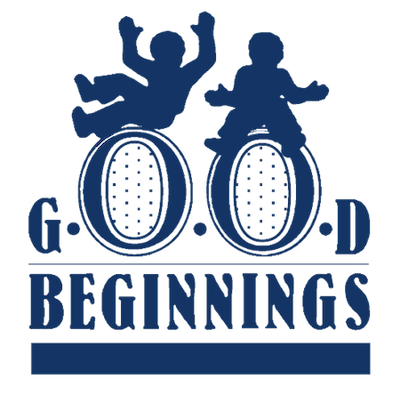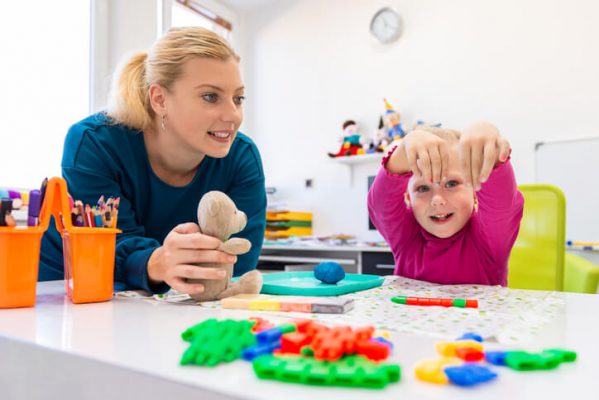Pediatric Occupational Therapy
serving Arlington, Virginia
Good Beginnings Therapy is proud to help families in Arlington, Virginia in enhancing children and families’ quality of life by facilitating the development of self-regulation, sensory processing, fine motor skills and social skills.
Your closest location is in Falls Church, Virginia
Our location in Falls Church is our “flagship” clinic and is located in the Seven Corners neighborhood. It is convenient to Arlington, Alexandria, Falls Church, Alexandria, Washington D.C. and families coming from Maryland.
Address: 6231 Leesburg Pike, Suite 500 Falls Church, VA 22044
Phone: 703.536.1817
Email: info@gbtherapy.org
Good Beginnings Therapy has been serving families from Arlington, Virginia for over 25 years.
How to get to Good Beginnings in Falls Church:
It can be easily accessed by I-495, Route 50, Route 7, and I-66.
Parking is free and easily accessible in the attached parking lot.
There are many convenient shops and places to eat across the street such as Giant Food , Michaels Arts and Crafts Store , The UPS Store, Burlington Coat Factory, Chipotle Mexican Grill , Red Robin, The Home Depot , Starbucks Seven Corners, and Barnes & Noble Bookstore. Our families coordinate errands with therapy appointments, treat themselves to a snack, and can pick up dinner on the way home!
What does pediatric occupational therapy treat or manage?

Pediatric occupational therapy is aimed at addressing a wide range of challenges that children may face in their daily lives. Here are some common areas that pediatric occupational therapy can treat or manage:
- Fine Motor Skills: Improving hand-eye coordination, dexterity, and control for activities such as writing, drawing, cutting, and using utensils.
- Gross Motor Skills: Occupational Therapists can assist with coordination and balance for activities like playing on the playground, jumping, and climbing.
- Sensory Processing: Helping children regulate their responses to sensory input (e.g., touch, sound, movement) to improve attention, behavior, and participation in activities.
- Self-care Skills: Teaching children how to independently perform tasks such as dressing, grooming, feeding, and toileting.
- Play Skills: Encouraging engagement in appropriate play activities that promote social interaction, creativity, problem-solving, and motor development.
- Executive Functioning Skills: Developing abilities such as attention, memory, organization, planning, and problem-solving to support academic success and daily functioning.
- Emotional Regulation: Assisting children in managing emotions, coping with stress, and developing positive social interactions and relationships.
Overall, pediatric occupational therapy aims to improve children’s independence, participation, and overall quality of life in home, school, and community settings.
Does my child need Occupational Therapy?
Pediatric Occupational Therapy may be beneficial for children who experience challenges or delays in various areas of development that impact their ability to participate in daily activities.
Some indicators that your child might benefit from occupational therapy include:
- They’re not meeting developmental milestones for their age group.
- They struggle with motor skills like balance, hand-eye coordination, or rolling over.
- They have difficulty with fine motor skills like self-feeding, drawing, or dressing.
- They are displaying sensory processing challenges, such as sensitivity to certain sounds, textures or colors.
- They face social difficulties, such as trouble understanding how to interact with others or recognizing others’ emotions.
- They have cognitive delays, such as trouble with focus, attention, organization or following multi-step directions.
- They have challenges with Self-Regulation: They have difficulty regulating their emotions or behavior, such as frequent tantrums or difficulty calming down when upset.
- Autism spectrum disorder (ASD): Children with ASD often benefit from occupational therapy to develop social skills, communication skills, sensory integration, and adaptive behaviors.
- Attention Deficit Hyperactivity Disorder (ADHD): Children with ADHD may benefit from occupational therapy to improve attention, organization, self-regulation, and executive functioning skills.
- Learning disabilities: Children with learning disabilities may benefit from occupational therapy to develop strategies for improving academic performance, organization, time management, and study skills.

When is the best time to get pediatric occupational therapy?
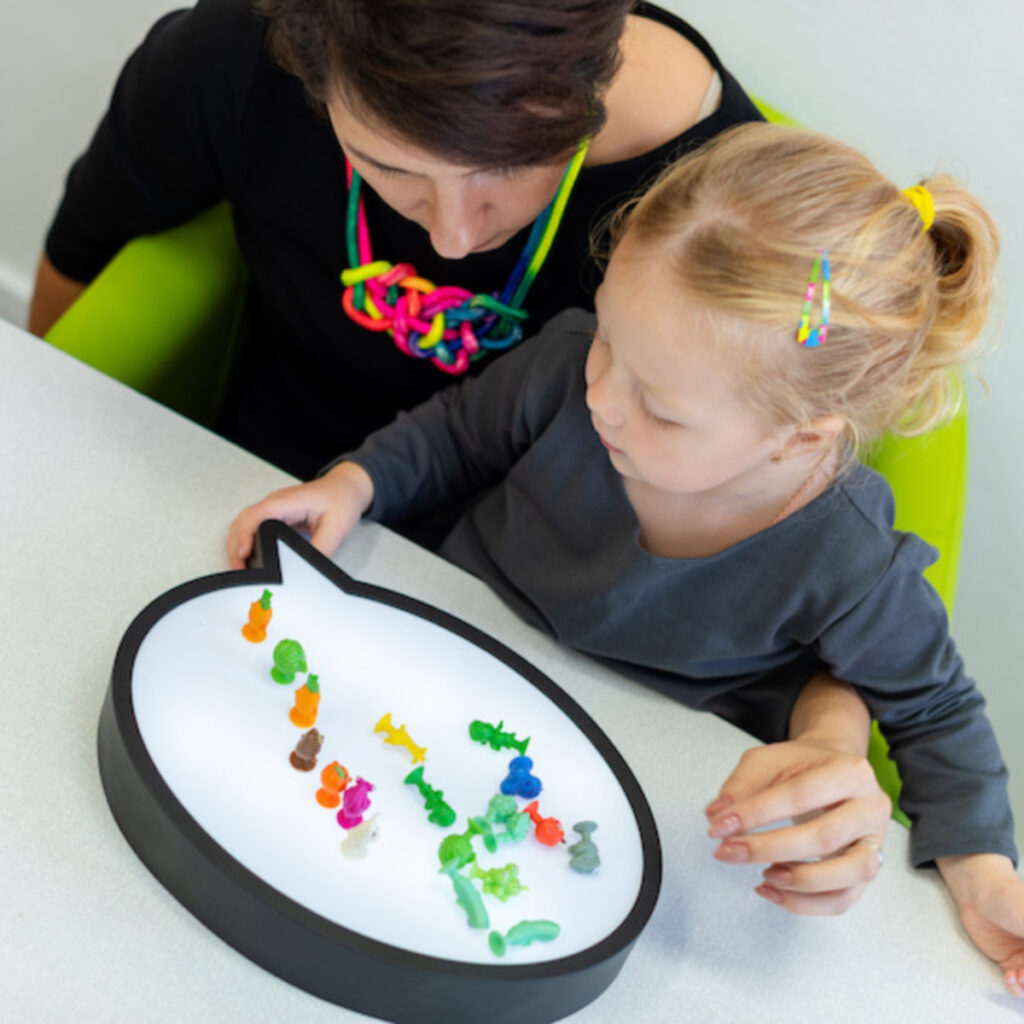
The ideal time to pursue pediatric occupational therapy is the moment you notice a concern. An evaluation will assess your child’s functioning, identify if therapy is needed, and help set goals. Since development is a continuous journey, obtaining information and assistance early on can only benefit your child!
Occupational therapy might be beneficial for your child if you notice any of the following:
- They seem to be falling behind on reaching the typical milestones for their age.
- They struggle with basic motor skills, like balance, coordination, or handling objects.
- Fine motor tasks such as feeding themselves, drawing, or dressing pose challenges for them.
- Social interactions are tough for them; they may find it hard to connect with others or understand social cues.
- Managing emotions and behaviors seems to be a struggle; they might have frequent outbursts or difficulty calming down.
- Cognitive delays, like trouble with memory or focus, are noticeable.
- If your child has specific conditions affecting their muscles, bones, nerves, cognition, or genetics—such as cerebral palsy, Down syndrome, autism, injuries, surgeries, or muscular dystrophy—occupational therapy could be particularly beneficial.
You’re in Good Company
What other Happy Familes have to say
Questions about how occupational therapy can help your child succeed?
Ask Amy

Amy O’Malley
Director Of Programming
How is Good Beginnings Pediatric Therapy Different from other Clinics in Arlington, Virginia?
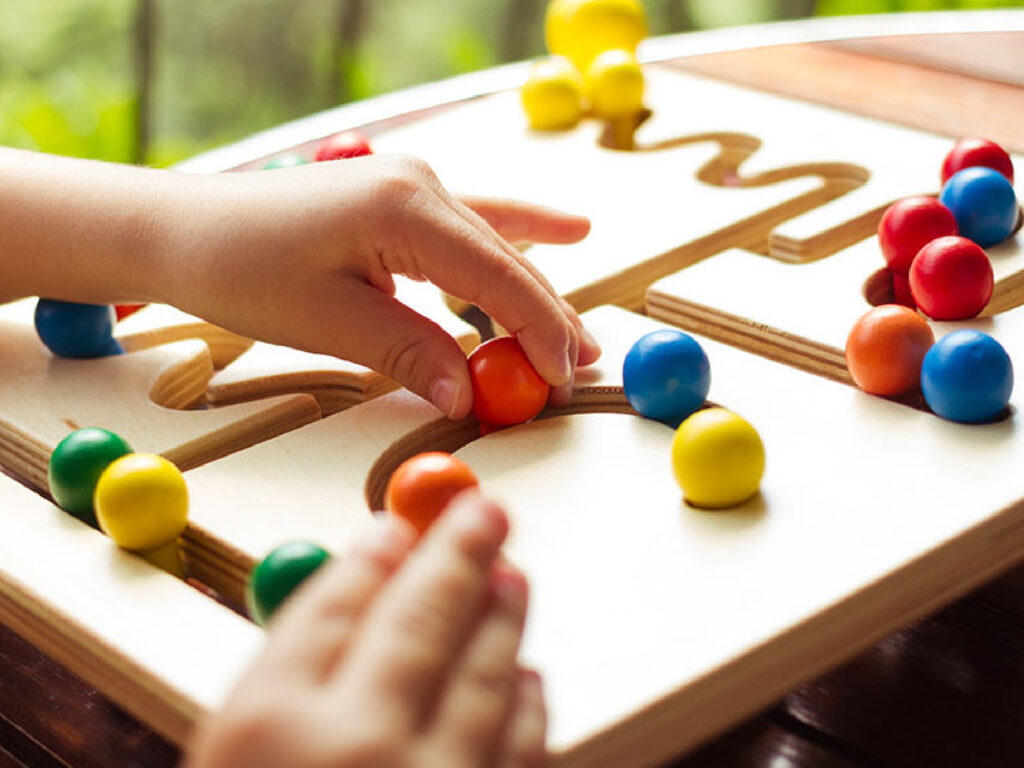
1-on-1 Treatment Session
We do not use support staff or paraprofessionals. Your child is working directly with your therapist the entire session.
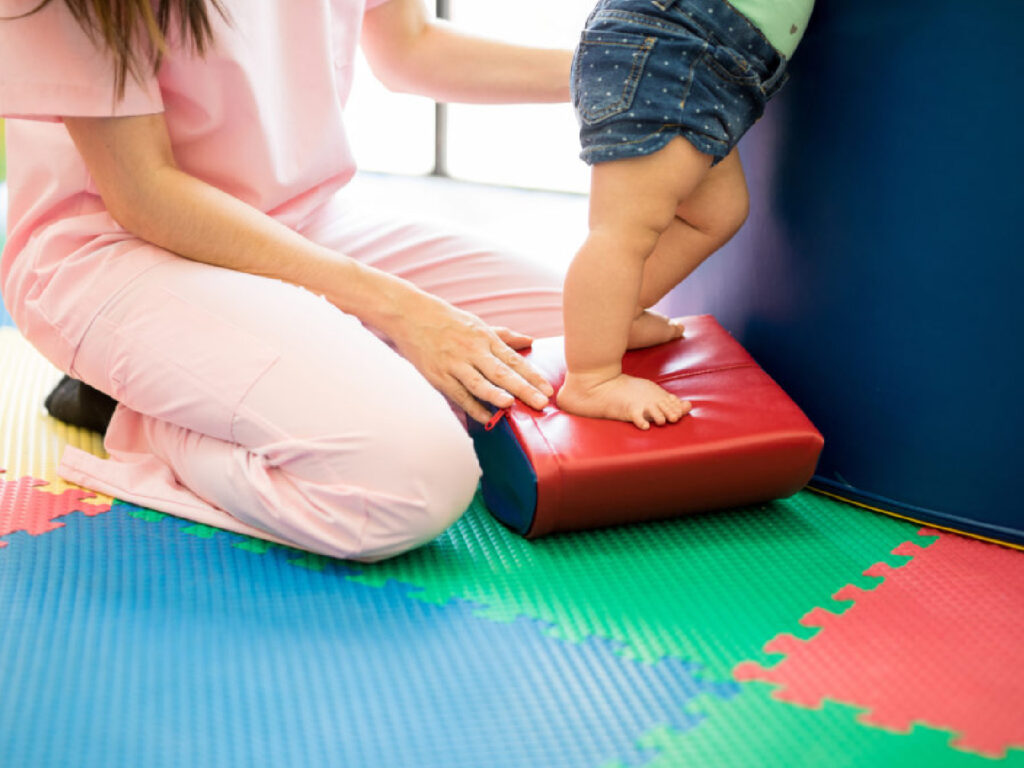
Helping families for over 34 years
Independently female owned and operated, we have been successful helping multiple generations of families.
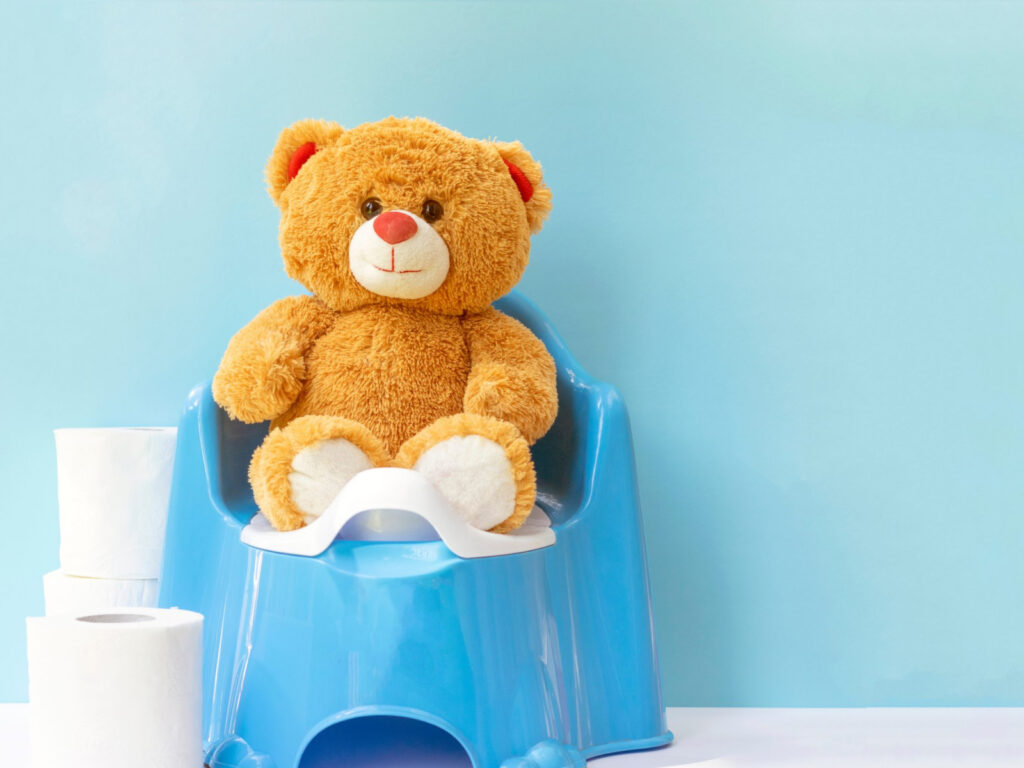
Help Beyond Treatment Sessions
We support you at the treatment session and beyond. We collaborate with other team members, clinicians, and your school at your request.

100+ years of combined experience
Our therapists possess extensive training, experience, and longevity in the field. Our team includes both recent graduates with the latest knowledge and seasoned therapists with over 25+ years of experience.
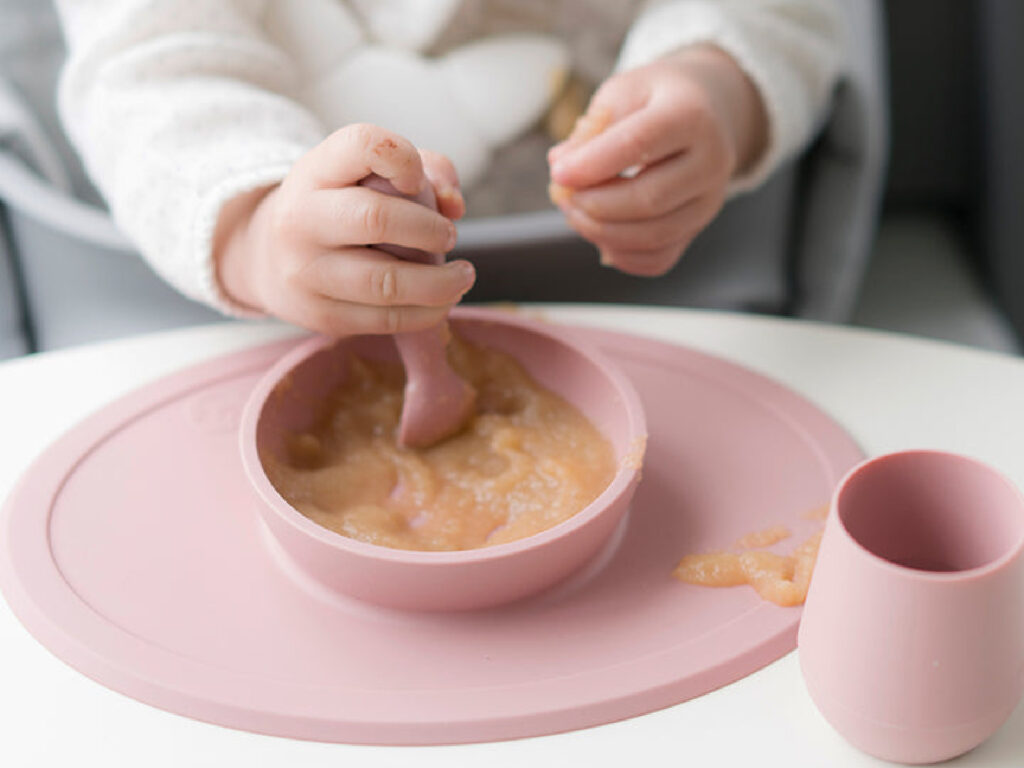
Flexible Schedule and Billing Options
Our scheduling and billing teams are here to maximize your time with your therapist and guide you through the complexities of insurance. make everything easy so you can focus on your child.

Supporting the Community
We educate and empower the community beyond the clinic through free talks, professional training, and sharing our expertise on social media.
FAQ
Pediatric Occupational Therapy (OT) focuses on helping children develop the skills needed for daily activities, such as self-care, play, and school tasks. OTs work on fine motor skills, sensory processing, executive function abilities, self-regulation and social interactions to improve a child’s independence and participation in daily life. In contrast, Pediatric Physical Therapy (PT) primarily addresses gross motor skills, mobility, strength, and balance. PTs help children with movement challenges due to conditions such as injuries, developmental delays, or neurological disorders, aiming to improve their physical function and overall quality of life. While both disciplines aim to enhance children’s well-being, OT focuses on activities and participation, while PT emphasizes movement and physical function.
Choosing a pediatric practice vs. an adult practice for your child ensures access to specialized expertise tailored to children’s unique needs. With a child-friendly environment and staff trained to interact positively with young patients, Good Beginnings create a comfortable and reassuring atmosphere. We offer developmentally appropriate care, adapting treatment techniques to match each child’s age and stage of development. At Good Beginnings we prioritize family-centered care, involving parents and caregivers as partners in their child’s healthcare journey.
With each session, we also equip you customized knoweldge to take home to help it easier for you and your child. However, here are general tips that can help your child succeed better.
- Help prepare your child: Talk to your child about what to expect during OT sessions in a positive and reassuring manner. Let them know that the therapist is there to help them learn and grow.
- Choose the Right Time: Schedule OT sessions at times when your child is well-rested and alert, to maximize their engagement and participation.
- Create a Comfortable Environment: Ensure that your child feels comfortable and relaxed during OT sessions. Bring any comfort items that might help, such as a favorite toy or blanket.
- Offer Encouragement: Provide plenty of praise and encouragement during OT sessions to boost your child’s confidence and motivation. Celebrate their successes, no matter how small, and offer support when they encounter challenges.
- Stay Involved: Stay engaged and involved in your child’s therapy process. Ask questions, participate in activities when appropriate, and communicate openly with the therapist about your child’s progress and any concerns you may have.
- Practice at Home: Work on activities and exercises recommended by the therapist at home to reinforce skills learned during OT sessions. Make practice fun and incorporate it into daily routines whenever possible.
- Be Patient and Understanding: Be patient with your child and with the therapy process. Every child progresses at their own pace, and it’s important to celebrate their individual achievements along the way.
We develop individualized treatment plans based on the results of your evaluation; treatment frequency is typically 1-2x per week, and may decrease as treatment progresses. Treatment lasts as long as it takes to meet the goals or reach a plateau where therapy has been maximized. This varies depending on the diagnosis, age of the child, and any complicating factors.
Each Pediatric Occupational Session last approxiamtely 50 – 55 minutes.
We accept credit cards* (Visa, Mastercard, Discover, HSA Cards) and checks. Most families prefer to securely store their credit card on file for automated monthly payments. Online payments can be made through this link.
Payment by checks can be given directly to your therapist or mailed to PO Box 679 Smithsburg, MD 21783.
*Note, a 3% processing fee applies to all credit card payments.
We work with many insurances and have a Billing Department to assist. We can submit claims, provide bills, and assist you with maximizing your insurance coverage. Please contact us at 703.536.1817 to learn how we work with your insurance. We do not work with Medicaid at this time.
What’s in the Arlington, Virginia Community?
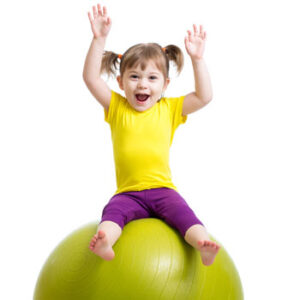
Arlington, Virginia features many highlights for residents.
Arlington County is the eighth-most populous county in the Washington metropolitan area. Arlington is the smallest self-governing county in the country, with no individual cities or towns within it. Arlington is located just across the Potomac River from Washington, DC
Some attractions include:
- The Pentagon
- George Washington Memorial Parkway and Hemicycle
- Theodore Roosevelt Island Park
- Mount Vernon Trail
- Arlington Historical Museum
- Ocean Dunes Water Park
During the American Revolution, Arlington played a significant role as the site of the key Battle of Arlington Mills, where colonial forces fought against British troops.
The Arlington Public School system consistently ranks among the top in the nation, providing students with high-quality education and a supportive learning environment.
Hidden among the bustling streets, Arlington is dotted with charming secret gardens, providing peaceful sanctuaries where visitors can escape the city’s hustle and bustle.
Good Beginnings therapy has been serving the Arlington, Virgnia Community for over 25 years. Through our work, we’ve met amazing families and incredible people. We look forwar to continuing to serve the Arlington Virginia community for years to come.
